How Organic Makeup Brands Are Redefining Beauty Standards
Rekindle Studio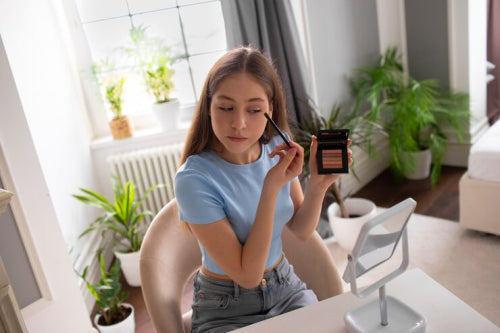
In the opulent malls of Dubai, where high fashion meets timeless traditions, a new kind of allure is captivating shoppers one that goes beyond mere aesthetics to embrace health and harmony with nature. This transformation echoes across vibrant markets in Mumbai, sleek boutiques in Singapore, and bustling retail hubs from Riyadh to Sydney. Organic makeup, long confined to specialty shelves, has emerged as a powerhouse, fueled by discerning consumers who prioritize purity, eco-responsibility, and cultural resonance in their daily rituals. Brands like Liht Organics exemplify this evolution, offering formulations free from harsh chemicals that cater to a global audience seeking ethical elegance.
Many women feel trapped by makeup that hides flaws but risks irritation and hidden toxins. This daily choice weighs heavily, dimming confidence over time. Liht Organics invites you to embrace beauty differently. With up to 90% USDA-certified organic ingredients, our vegan, cruelty-free products deliver vibrant color and gentle care, letting you glow with confidence, knowing your skin is nurtured, not compromised. Shop Now!
The Surge in Organic Beauty Worldwide
The beauty landscape is experiencing profound change, with natural and organic products at the forefront. As per recent analyses, the natural and organic cosmetics market reached approximately USD 21.48 billion globally in 2023, poised for expansion to USD 37.44 billion by 2032 at a compound annual growth rate of 7.19% from 2024 onward. These items, part of the broader personal care sector, distinguish between "natural" where 95% or more ingredients come from nature, allowing minimal synthetic additions and "organic," which demands stringent organic sourcing for those natural components. This distinction matters as consumers increasingly equate the terms, yet seek verifiable quality.
Parallel insights reveal the organic personal care market was valued at USD 21.82 billion in 2022, forecasted to climb to USD 44.77 billion by 2030 with a 9.4% CAGR starting from 2023. Europe holds a significant 25% share, while India's segment advances at 10.1% CAGR. Skin care leads with 50.2% dominance, addressing fears of chemical harms like irritation or dullness, and hypermarkets/supermarkets command 43.5% of distribution. This growth stems from escalating health consciousness, environmental concerns, and a push for sustainable practices amid post-pandemic wellness trends.
Driving forces include affluent middle classes in emerging economies, amplified awareness of synthetic risks, and a societal tilt toward green living. In regions like the Middle East and Asia, cultural alignments amplify appeal halal compliance in Arab nations, Ayurvedic roots in India, and vegan ethics in Southeast Asia. Western markets, particularly the US and Australia, emphasize transparency and inclusivity, with younger generations leading the charge. Updated projections as of 2025 affirm this trajectory, with no major revisions to core forecasts but added emphasis on digital sales and innovative launches, such as organic foundations targeting sensitive skin.
Regional Dynamics Shaping the Industry
In the UAE and Saudi Arabia, organic makeup aligns seamlessly with cultural and luxurious lifestyles. The UAE's organic personal care market hit USD 113.6 million in 2024, set to grow at 7.7% CAGR through 2030, reflecting demand for halal-certified, alcohol-free options in upscale venues like Dubai Mall. Saudi Arabia's natural cosmetics segment is projected at US$172.87 million in 2025, part of a broader beauty market reaching USD 0.87 billion that year with a 9.8% CAGR to 2030. Empowered women, bolstered by economic reforms, favor brands offering clean, value-aligned products. Liht Organics thrives here by emphasizing purity, positioning organic beauty as essential rather than extravagant.
Singapore and Malaysia showcase regulatory rigor and eco-awareness fueling growth. Singapore's natural cosmetics revenue is expected to hit US$19.76 million in 2025, with a modest 1.47% annual growth, yet the broader ASEAN organic cosmetics market surges from USD 3.2 billion in 2025 at 9.2% CAGR to 2035. In Malaysia, the segment reaches US$53.05 million in 2025, growing at 2.81% CAGR, with organic cosmetics projected at 9.99 billion (likely in local currency context) by some estimates, though Statista provides conservative figures. Strict standards and a rising middle class drive vegan, sustainably packaged items. Liht Organics gains traction via eco-retail and expos, appealing to consumers valuing efficacy and environmental stewardship.
India's market blends tradition with modernity, where Ayurvedic heritage meets contemporary certifications. The organic personal care sector stood at USD 1.074 billion in 2024, eyeing USD 2.426 billion by 2030 at 14.54% CAGR surpassing the 10.1% forecast for broader organic care. Natural cosmetics are slated for US$997.42 million in 2025. Urban dwellers, inspired by ingredients like turmeric and neem, propel startups against multinationals, with e-commerce amplifying reach. This fusion underscores a shift toward scientifically backed naturals, challenging conventional dominance.
In the US and Australia, sustainability and inclusivity reign supreme. The US natural cosmetics market is forecasted at US$2.00 billion in 2025, with 5.65% CAGR, within an organic personal care landscape growing at 9.5% to USD 10.85 billion by 2030. Initiatives like Sephora's Clean program spotlight transparent brands. Australia's segment hits US$167.74 million in 2025, advancing at 4.40% CAGR, with organic skin care at USD 176.80 million in 2024 rising 6.40% to 2034. E-commerce and ethical sourcing cater to health-focused demographics, where organic makeup signifies mindful consumption.
Navigating Hurdles and Seizing Prospects
Yet, the path isn't without obstacles. Price sensitivity in India and Malaysia keeps conventional products prevalent, despite organic appeal. Skepticism in the UAE and Saudi Arabia demands robust certifications to validate claims. Divergent regulations stringent in the US and Australia, evolving in Asia complicate scaling for brands like Liht Organics. Sourcing sustainable, certified ingredients amid supply fluctuations adds pressure, as does competition from greenwashing tactics.
Opportunities abound, however. Digital ecosystems, from Instagram influencers to TikTok tutorials, democratize access in Singapore, Malaysia, and India, where social media boosts visibility. Market expansions, like halal-organic hybrids in the Middle East or Ayurvedic-modern blends in India, promise mainstream integration. Efficiencies in supply chains and tech like blockchain for traceability already piloted in the US and Australia could standardize trust globally. For Liht Organics, focusing on cruelty-free, inclusive lines positions it to harness these shifts, turning consumer ethics into business growth.
Envisioning Tomorrow's Beauty Landscape
Looking ahead, sustainability emerges as imperative. Biodegradable packaging and toxin-free recipes are standard bearers, especially in tech-savvy markets like the US and Australia, where blockchain enhances traceability. Cultural tailoring remains vital: halal in the UAE and Saudi Arabia, vegan in Singapore and Malaysia, Ayurvedic in India. Experts foresee tech integration spreading to Asia, empowering informed choices. Recent innovations, such as cruelty-free lines and eco-store designs, signal ongoing momentum.
Brands like Liht Organics must prioritize value alignment, certification investments, and narrative-driven marketing. This isn't mere expansion it's a redefinition, merging aesthetics with accountability.
Establishing a Lasting Legacy in Beauty
From Mumbai's vibrant lanes to Sydney's modern emporiums, organic makeup transcends trends, embodying resistance to toxins, reverence for heritage, and planetary care. As markets in the UAE, Singapore, Malaysia, the US, Australia, Saudi Arabia, and India evolve, Liht Organics and peers pioneer an ethical, inclusive era. In this choice-driven world, selecting organic isn't just smart it's transformative, fostering beauty that's as kind to skin as to the earth.
Frequently Asked Questions
What is the difference between natural and organic makeup?
Natural makeup contains 95% or more ingredients sourced from nature with minimal synthetic additions, while organic makeup requires stringent organic sourcing for all natural components. This distinction matters as consumers increasingly seek verifiable quality and often equate the terms, but organic products undergo more rigorous certification processes to ensure purity and sustainability.
How fast is the organic makeup market growing globally?
The global natural and organic cosmetics market reached approximately $21.48 billion in 2023 and is projected to expand to $37.44 billion by 2032, representing a 7.19% compound annual growth rate. The organic personal care segment specifically is forecasted to climb from $21.82 billion in 2022 to $44.77 billion by 2030 with a 9.4% CAGR, driven by increasing health consciousness and environmental concerns.
Why are consumers switching to organic makeup brands?
Consumers are embracing organic makeup due to escalating health consciousness, environmental concerns, and fears of chemical-related skin issues like irritation or dullness. The shift is also fueled by cultural alignments such as halal compliance in Arab nations, Ayurvedic roots in India, and vegan ethics in Southeast Asia, with younger generations leading the charge toward transparent, sustainable beauty practices.
Disclaimer: The above helpful resources content contains personal opinions and experiences. The information provided is for general knowledge and does not constitute professional advice.
You may also be interested in: Organic Makeup That Heals As It Conceals – Liht Organics
Many women feel trapped by makeup that hides flaws but risks irritation and hidden toxins. This daily choice weighs heavily, dimming confidence over time. Liht Organics invites you to embrace beauty differently. With up to 90% USDA-certified organic ingredients, our vegan, cruelty-free products deliver vibrant color and gentle care, letting you glow with confidence, knowing your skin is nurtured, not compromised. Shop Now!
Powered by flareAI.co
Share
You May Also Like
-

Discovering Self-Love Through Clean Beauty: A Guide to Nurturing Your Inner and Outer Self
In the journey of self-love, every action, thought, and choice we make towards ourselves can be a powerful affirmatio...
-

The Science Behind Organic Makeup and Pregnancy: A Gentle Choice for Moms-to-Be
wp:paragraph Pregnancy is a wonderful and exciting journey that comes with added responsibilities of ensuring the ...
-
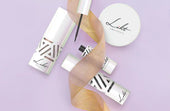
Liht Organics Black Friday: Enhance Your Beauty Routine with Vegan, Organic, and Natural Essentials!
As the holiday season approaches, there’s a sparkle in the air, and we at Liht Organics are thrilled to add a touch o...
-

Organic Makeup That Heals As It Conceals
Liht Organics Empowers Women With Only The Best For Their Beauty NeedsLiht Organics combines the best of both worlds:...
-
![[FEATURE] Liht Organics to debut at TFWA Asia Pacific show](//lihtorganics.com/cdn/shop/articles/1_1.png?v=1759328400&width=170)
[FEATURE] Liht Organics to debut at TFWA Asia Pacific show
‘Organic makeup that’s safe enough to eat’ — Liht Organics to debut at TFWA Asia Pacific show by Hannah Tan | 24 Apri...
-
![[FEATURE] The Singapore-based organic makeup brand is a first-time exhibitor at this year’s TFWA Asia Pacific Exhibition in Singapore in May 2025](//lihtorganics.com/cdn/shop/articles/2_1.png?v=1759328386&width=170)
[FEATURE] The Singapore-based organic makeup brand is a first-time exhibitor at this year’s TFWA Asia Pacific Exhibition in Singapore in May 2025
TFWA Asia Pacific preview: Liht Organics targets expansion in travel retail By DFNI Staff Writer The Singapore-bas...
-
![[FEATURE] Travel Retail Awards 2025 finalists - Best Make-up Product Color-Intense Liquid Lipstick – Liht Organics](//lihtorganics.com/cdn/shop/articles/4_e2f54f0f-fcd1-46e7-9990-fc9d29e35131.png?v=1759328382&width=170)
[FEATURE] Travel Retail Awards 2025 finalists - Best Make-up Product Color-Intense Liquid Lipstick – Liht Organics
Revealed: Travel Retail Awards 2025 finalists By Trbusiness Editor | Wednesday, 23 July 2025 15:21 TRBusiness is th...
-
![[FEATURE] Liht Organics targets expansion in travel retail](//lihtorganics.com/cdn/shop/articles/3_1.png?v=1759328346&width=170)
[FEATURE] Liht Organics targets expansion in travel retail
Organic makeup that’s safe enough to eat: Liht Organics targets expansion in travel retail By Laura Shirk Liht Organ...
-

[FEATURE] Gulf News: TikTok’s strawberry girl makeup trend: How to achieve that rosy glow inspired by Hailey Bieber
Berry, berry, strawberry, love strawberry, like BTS’s J-Hope, the band’s strawberry enthusiast once said. If only we ...
-

[FEATURE] Gulf Business Magazine : Liht-ing it up
Our founder, Nerissa Low was interviewed by Gulf Business, where she discussed her experience launching Liht, an orga...
-

[FEATURE] Daily Vanity: 11 local beauty brands owned by women – you’d be surprised how many of them started in their kitchens!
When we give a shout-out to homegrown beauty businesses, we aren’t just doing it for the sake of supporting local. Th...
-

[FEATURE] Entrepreneur ME : UAE-Based Liht Organics' Nerissa Low On Crafting An Organic Makeup Brand For The Skin-Conscious Consumer
As is the case with the origin stories of so many startups out there, Liht Organics came into being after its founder...
-
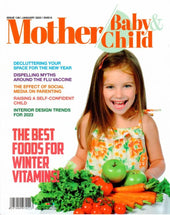
Mother, Baby & Child Editor’s Pick: Liht Organics Lights the Way
Excited to be the Mother, Baby & Child’s ‘Editors pick’ for their choice of Beauty brand.The article outlined the...
-
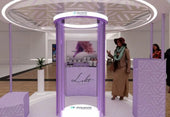
[FEATURE] EmiratesWoman - 8 Fabulous things to do in Dubai this weekend
by SARAH JOSEPHJANUARY 20, 2023Try the UAE’s first virtual reality makeup podium The popular VR-backed makeup exper...
-

Nerissa Low of Liht Organics On The Self-Care Routines & Practices Of Busy Entrepreneurs and Business Leaders
By Maria Angelova, CEO of Rebellious Intl.Date: 4 January, 2023Nerissa Low of Liht Organics On The Self-Care Routines...
-

Liht Organics: Meet the beauty brand that has caught the eye of the Royal Family of Bahrain
By Crystal Lee Digital Editor28 May 2021The world of clean beauty is, ironically, rather murky.That’s because the ter...
-

The latest luxury makeup and skincare drops, including serums, concealers, moisturisers and more
Allisa Noraini21 May, 2021It’s fine to splurge in the name of beauty. This new range of makeup and skincare drops are...
-

These SG Beauty Bosses Are Conquering The World Despite The Pandemic
First Singapore, then the US, China, Germany, Dubai, UK, South Korea, Malaysia, Hong Kong, Thailand, Australia… By...
-

Nerissa Low, Founder at Liht Organics
Written by Callum LaingPosted on December 26, 2020 10 min readNerissa Created Organic Makeup That Actually Improve...
-

Liht Organics – Makeup That Makes You
At Liht Organics, our mission is simple – to provide women (and men) with a safe experience when it comes to beauty s...
-

Why Should We Use Organic Makeup?
We cannot deny that cosmetics is one of our beauty essential item – it enhances our looks and conceals our flaws. Man...
-

Organic makeup and why your skin will love it: Liht Organics founder
By Jolene,July 27, 2020 |7 mins readOrganic make up in Singapore is a trend that is fast-catching on here as we becom...
-

[FEATURE] DC EDIT – Makeup & Confidence: Talking Self-love With Liht Organics’ Founder Nerissa Low
Makeup and confidence — the long, drawn-out fight that many of us have grappled with personally. I’m sure I’m not the...
-

[FEATURE] THE FEMALE CULTURE – I TRIED LIHT ORGANICS AND THIS IS HOW IT WENT
I’m a huge fan of makeup and I love testing out new products so I was pretty excited to get my hands on Liht Organics...
-

[FEATURE] SINGAPORE MOTHERHOOD – The Best Organic and Natural Skincare and Makeup for Pregnant and Breastfeeding Mums in Singapore
Pregnancy is a hormone-volatile period for women. One place where this makes itself seen and felt is on the skin. Som...
-

[FEATURE] AFTER CLINIC HOURS – 21 Back to Beauty Deals in Singapore (2020)
With spas and salons shuttered island wide for two months, I never thought I’d be this desperate for a good old’ Swed...
-

[FEATURE] KUL AL USRA MAGAZINE JUNE 2020
Choosing Pinks & Oranges this summer!Featured: Moisture Burst Lip Glaze in Pink Cupcake.
-
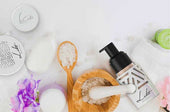
[FEATURE] Award-winning Organic Makeup Brand Liht Organics Gives Back to the Community & Environment During COVID-19
Singapore’s First Organic Makeup Brand with 100% Natural Makeup That Is Safe Enough to Eat Liht Organics promises org...
-

[FEATURE] COSMETICS DESIGN ASIA – COVID-19 ‘WAKE-UP CALL’: SINGAPORE’S LIHT ORGANICS SEES GLOBAL POTENTIAL AMID CLEAN BEAUTY CLAMOUR
Original article at: https://www.cosmeticsdesign-asia.com/Article/2020/06/26/Singapore-s-Liht-Organics-sees-globa...
-

[FEATURE] THE LIFESTYLE COLLECTIVE – BEAUTY SHOULD NEVER BE CRUEL
Date: June 24, 2020Author: Kristen Chen Liht (pronounced as light) Organics is a Singaporean organic makeup brand t...
-

[FEATURE] NÜYOU – 7 ONLINE PLATFORMS TO SHOP FOR CLEAN BEAUTY PRODUCTS
纯净美容(Clean Beauty)的美肤概念,再近几年来越来越受欢迎。随着消费者“爱自己”的美容意识逐步提升,对于用在脸上的所有物品、成分更为关注和讲究。以广义来讲,纯净美容主张使用“干净”成分和无毒配方,让肌肤的可能性损伤减到最小...
-

[FEATURE] COSMOPOLITAN MIDDLE EAST – 3 BENEFITS OF SWITCHING TO ORGANIC BEAUTY PRODUCTS THIS RAMADAN
By Cosmo – May 08, 2020Nerissa Low, founder of Liht Organics, shares the ultimate benefits of going organic this mont...
-

Nerissa Low of Liht Organics: “Seeing Light at the End of the Tunnel; 5 Reasons To Be Hopeful During this Corona Crisis”
Ely Weinschneider, Psy.D.May 8 · 9 min read …It shows us that everyone- whether we are rich or poor, regardless...
-

[FEATURE] AL MARA MAGAZINE APRIL 2020
-

[FEATURE] RetailME April 2020 – Liht Organics Stays Firm On Strengthening GCC Presence
-

[FEATURE] EMARAT AL YOUM NEWSPAPER – 27 MARCH 2020
English Translation:In spring and summer days, women love to have very light makeup in terms of color and texture, ...
-

[ARTICLE] WKND Magazine March 2020 – Know Your Organic Makeup
-

[FEATURE] AVIAMOST DUBAI – March/April 2020
English Translation:Lipstick with organic flowers. Thanks to the rich complex of natural ingredients, the lipstick...
-

[FEATURE] RUSSIAN EMIRATES (MAR/APR ISSUE)
Russian Emirates is a luxury lifestyle and fashion magazine covering information about the UAE, fashion, beauty, j...
-

[FEATURE] – KUL AL USRA MAGAZINE MARCH 2020
GET THE LOOK!
-

[FEATURE] IMAGES Retail ME – Liht Organics Announces GCC-Wide Expansion
Rupkatha Bhowmick Mar 10, 2020 The plan is to reach 75 Liht Organics retail touchpoints by June-July 2020 and touch...
-

[FEATURE] BABY & CHILD SPRING 2020 – NATURAL BEAUTIES
-

[FEATURE] AWQAT DUBAI – Liht Organics: The First Premium Organic Makeup Brand
ENGLISH TRANSLATION:Liht Organics – The First Premium Organic Makeup Brand Liht Organics, a premium organic beauty ...
-

[FEATURE] FRIDAY MAGAZINE – THE RETRO EYELINER LOOK
-

[FEATURE] MOTHER BABY & CHILD – VANITY ESSENTIALS – THE BEAUTY EDIT
-

[FEATURE] Masala! Magazine February/March 2020 Issue – Beauty Debut: Liht Organics
-

[Feature] – TimeOut Singapore – The Best Local Beauty and Skincare Brands In Singapore
For full article, click here.
-

[FEATURE] KUL AL USRA MAGAZINE – LIHT UP YOUR WORLD WITH LIHT ORGANICS
[ENGLISH TRANSLATION]Liht Up Your World With Liht OrganicsThe First Premium Organic Makeup Brand To Debut In The Mi...
-

[FEATURE] SINGAPORE TATLER – 9 Local Beauty Brands You Should Know Of
-

[FEATURE] nüyou August 2019 Issue – 15 Faces To Watch
-

[FEATURE] HONEYCOMBERS – Local Beauty Gurus: Singapore Beauty Brands You Need To Know About
-

[FEATURE] The Wellness Insider – Seeing The Liht With Founder Nerissa Low
-

[FEATURE] 联合早报 (LianHeZaoBao) – Women Entrepreneur Awards 2019 Coverage
-

[FEATURE] THE STRAITS TIMES Life – Clean beauty with a Singapore heart
-

Romantic Organic Makeup Looks for Valentine's Day: Tips, Tricks, and Product Picks
Valentine's Day is the perfect occasion to embrace the beauty of organic makeup. At Liht Organics, we believe in the ...
-
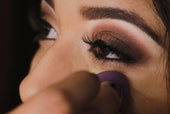
Enhance Your Eyes: A Guide to Eyeliner for Every Eye Shape with Liht Organics
Welcome to the Liht Organics blog, where we believe in celebrating the natural beauty of every eye shape. Today, we'r...
-
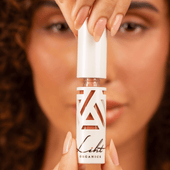
How to do makeup with only lipstick?
At Liht Organics, we believe in the power of clean beauty and the artistry of makeup. Makeup is more than just enhanc...
-

How to Clean Your Makeup Brushes in 6 Simple Steps
Cleaning your makeup brushes may seem like a tedious task, but it's an essential part of your beauty routine. Not onl...
-

Makeup Tips to Help You Look Your Most Flattering on Virtual Meetings!
After more than 2 years of work-from-home arrangement, and possibly hundreds of zoom calls and Google meet virtual me...
-
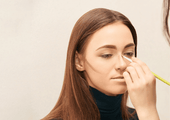
Learn How to Contour with This Simple Guide for Beginners
Want to take your makeup to the next level? Try contouring to achieve a more defined or sculpted look à la the Kardas...
-
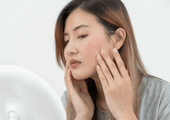
Essential and Easy Makeup Tips for Sensitive Skin
Living with sensitive skin conditions like eczema, psoriasis, and more is already not an easy feat. Throw in makeup t...
-

Raising Your Vibration: A Liht Organics Guide for Empowerment This International Women's Day
wp:paragraph As International Women's Day (IWD) approaches, it serves as a powerful reminder of the journey towards s...
-

The Beauty of Going Bare: Why Sleeping with Makeup is a No-No
Have you ever had one of those nights where you're too tired to clean off your makeup? You might believe, "Skipping...
-

Breast Cancer Awareness: Empower Your Beauty with Liht Organics Makeup
During October, we observe Breast Cancer Awareness Month as a way to unite and bring attention to breast cancer whil...
-

The Hidden Dangers of Carmine in Makeup Colorants: Embracing Healthier and Vegan Options
Makeup has become an integral part of our daily routines, allowing us to express our unique beauty. However, as we pr...
-

How can I ensure that my makeup products are organic and won't harm my skin?
When it comes to makeup, it’s important to be mindful of what you’re putting on your skin. With so many products on t...
-
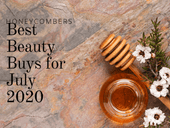
[FEATURE] HONEYCOMBERS – BEST BEAUTY BUYS IN JULY
by Nicole NithiyahWhat’s hot in our beauty hit list: Honest thoughts and top beauty stories we’re swooning over. As w...
-

Liht Organics Introduces Exclusive Gift Sets: Enhance Your Beauty This Festive Season!
As the holiday season approaches and the year draws to a close, Liht Organics is thrilled to present two enchanting g...
-

Get Spooktacular with the Best Halloween Makeup Ideas using Liht Organics' All-Natural, Vegan, and Cruelty-Free Cosmetics!
With Halloween just around the corner, it’s time to let your creativity shine and transform yourself into a spooky,...
-

Celebrating World Animal Day with Liht Organics: Embracing Natural Cruelty-Free Makeup
wp:paragraph As we observe World Animal Day, the team at Liht Organics takes great pride in honoring our pledge to...
-
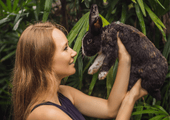
Reasons Why You Should Choose Cruelty-Free Cosmetics Instead!
With increasing exposés unveiling the ugly truth behind animal testing that goes on in the beauty industry, it is lit...
-

Celebrate Singles Day with Makeup That Empowers – 22% Off at LIHT Organics!
This Singles Day, treat yourself to beauty that goes beyond skin-deep. At LIHT Organics, we believe makeup is about s...
-

Preparing for the Cozy Beauty of Autumn: A Preview of Your Fall Look
As we bid farewell to the warm, sun-kissed days of summer, it’s never too early to start dreaming about the enchantin...

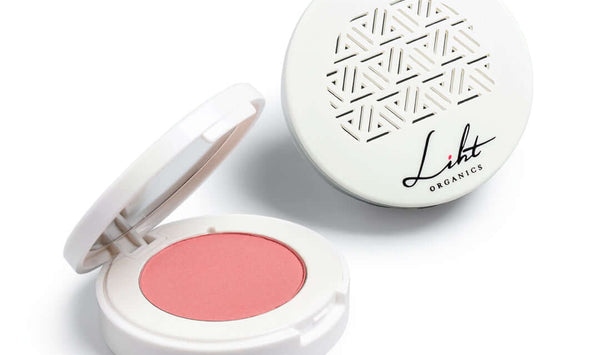
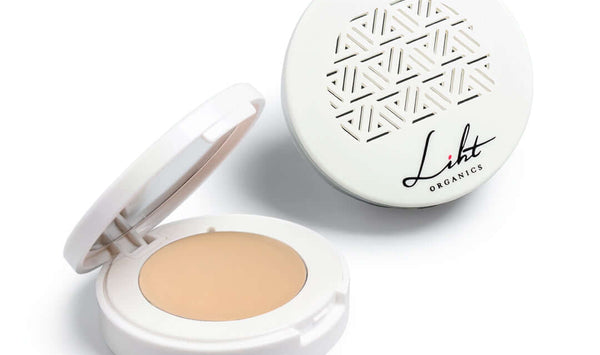
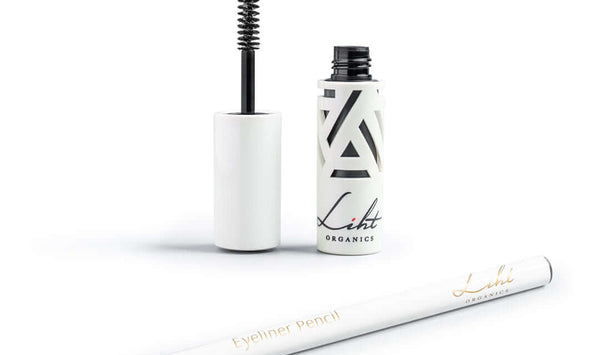
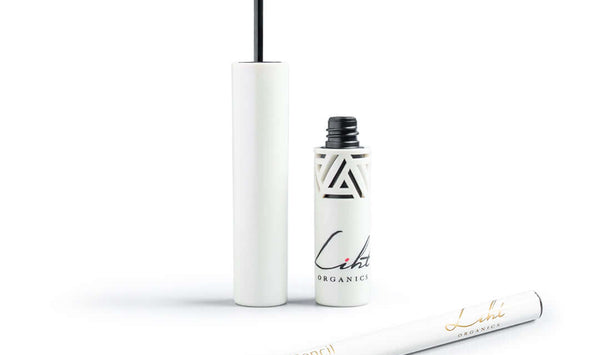
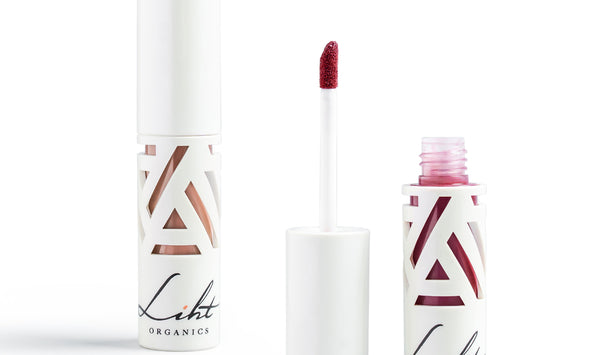
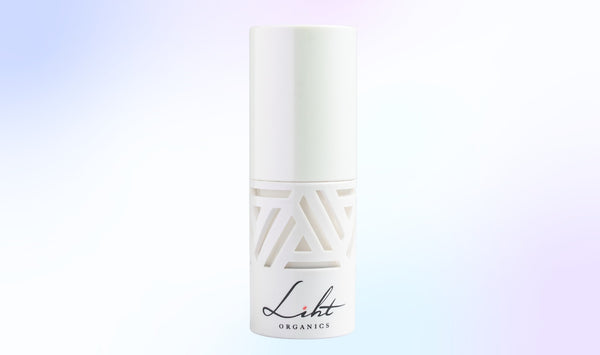

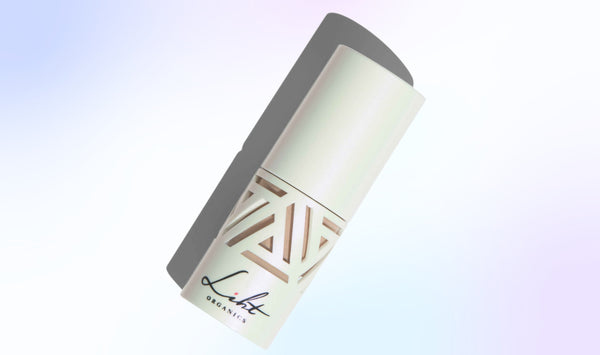
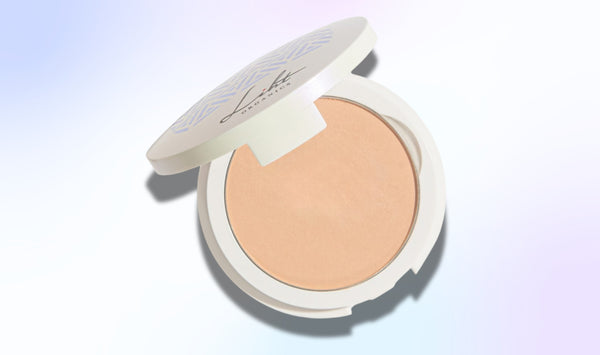
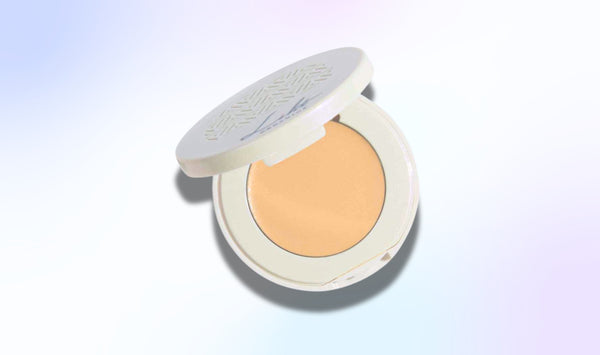
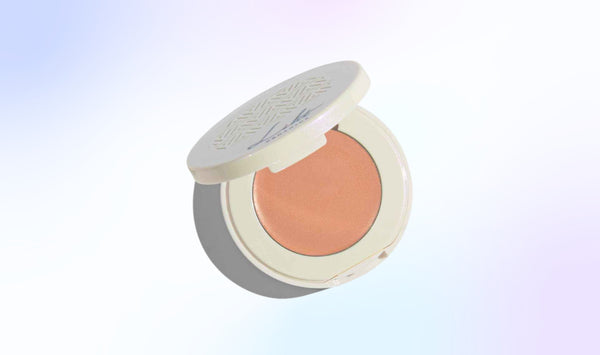
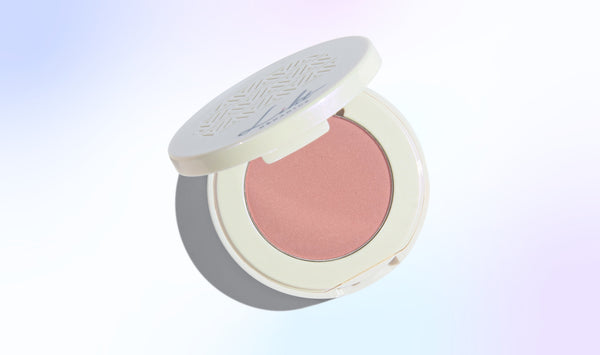
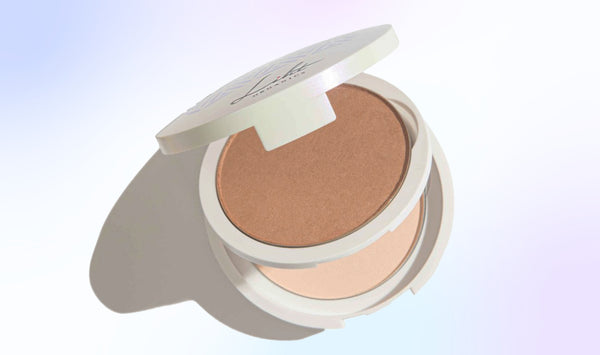
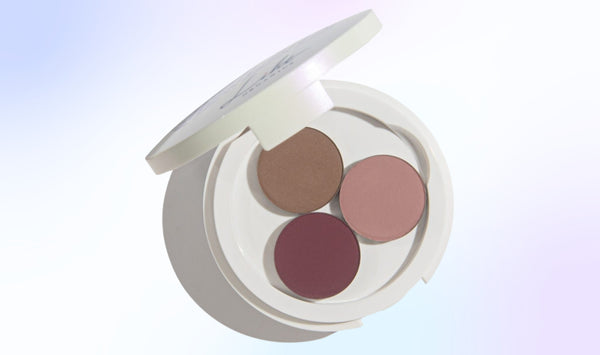
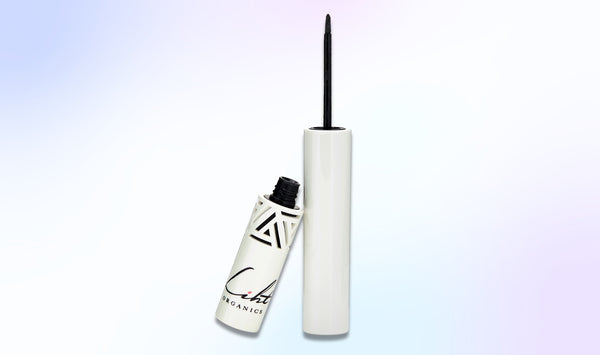
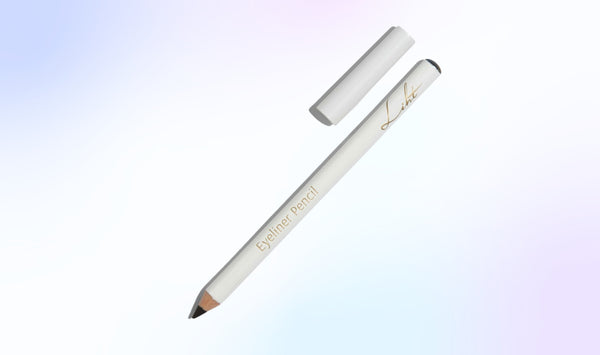
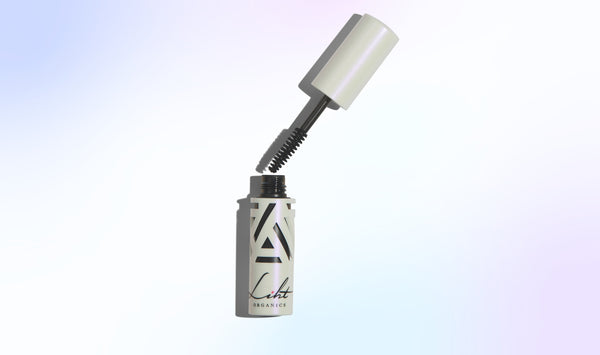
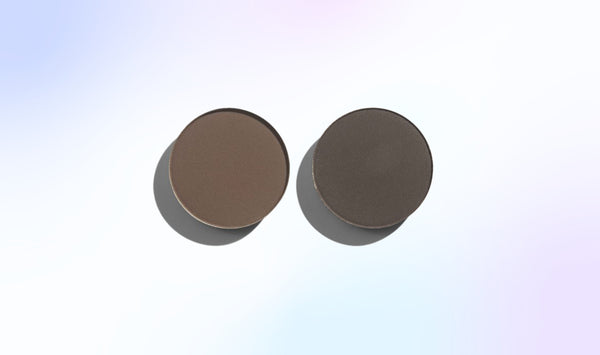
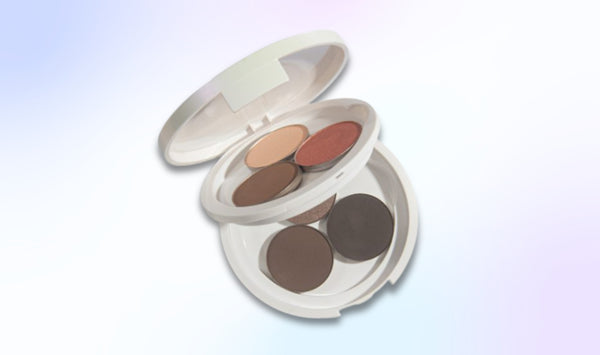
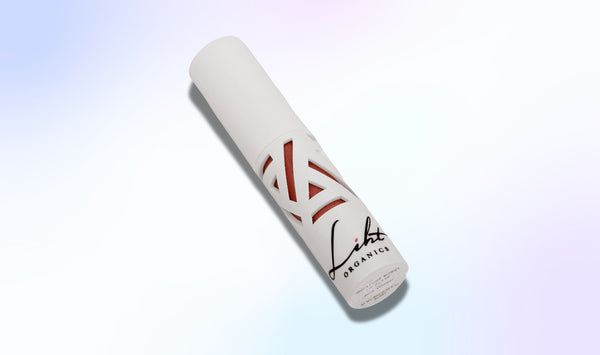
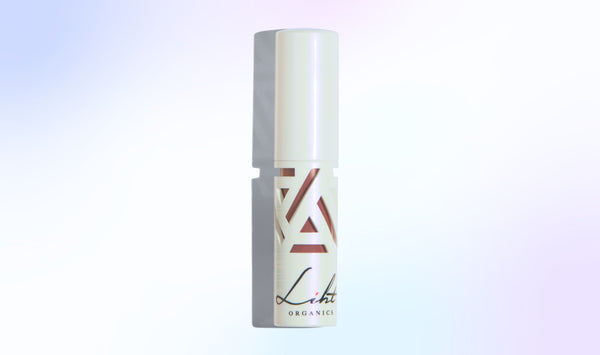
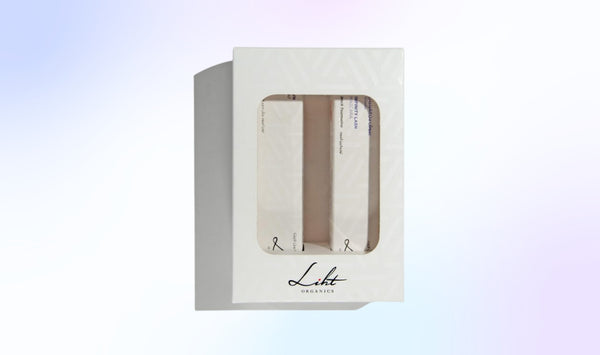
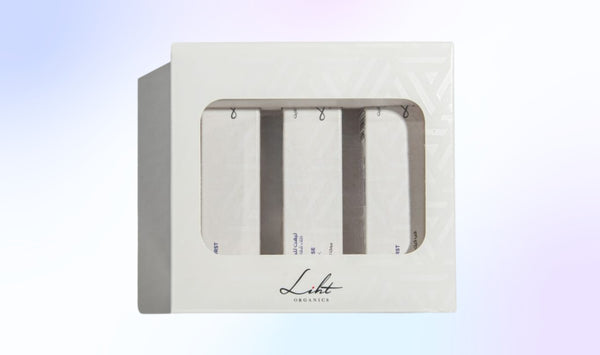


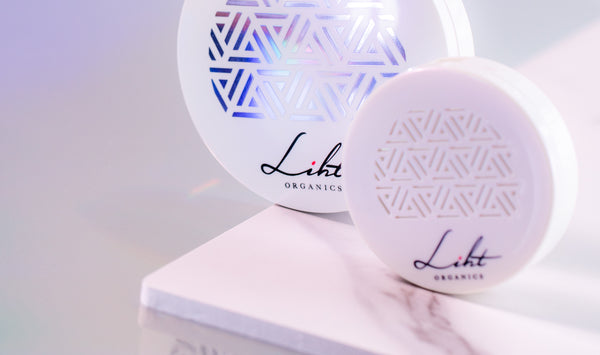
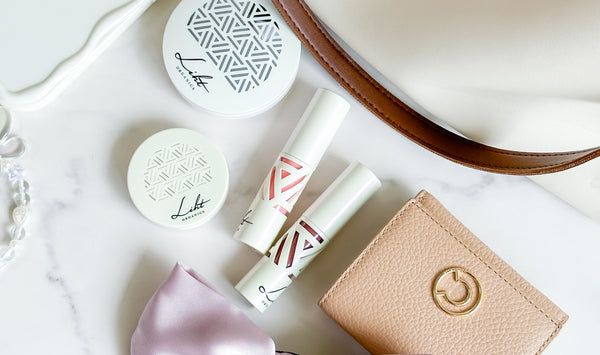
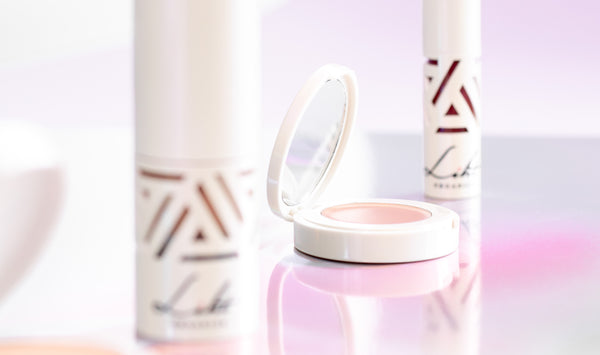




![[FEATURE] Liht Organics to debut at TFWA Asia Pacific show](http://lihtorganics.com/cdn/shop/articles/1_1.png?v=1759328400&width=170)
![[FEATURE] The Singapore-based organic makeup brand is a first-time exhibitor at this year’s TFWA Asia Pacific Exhibition in Singapore in May 2025](http://lihtorganics.com/cdn/shop/articles/2_1.png?v=1759328386&width=170)
![[FEATURE] Travel Retail Awards 2025 finalists - Best Make-up Product Color-Intense Liquid Lipstick – Liht Organics](http://lihtorganics.com/cdn/shop/articles/4_e2f54f0f-fcd1-46e7-9990-fc9d29e35131.png?v=1759328382&width=170)
![[FEATURE] Liht Organics targets expansion in travel retail](http://lihtorganics.com/cdn/shop/articles/3_1.png?v=1759328346&width=170)
































































